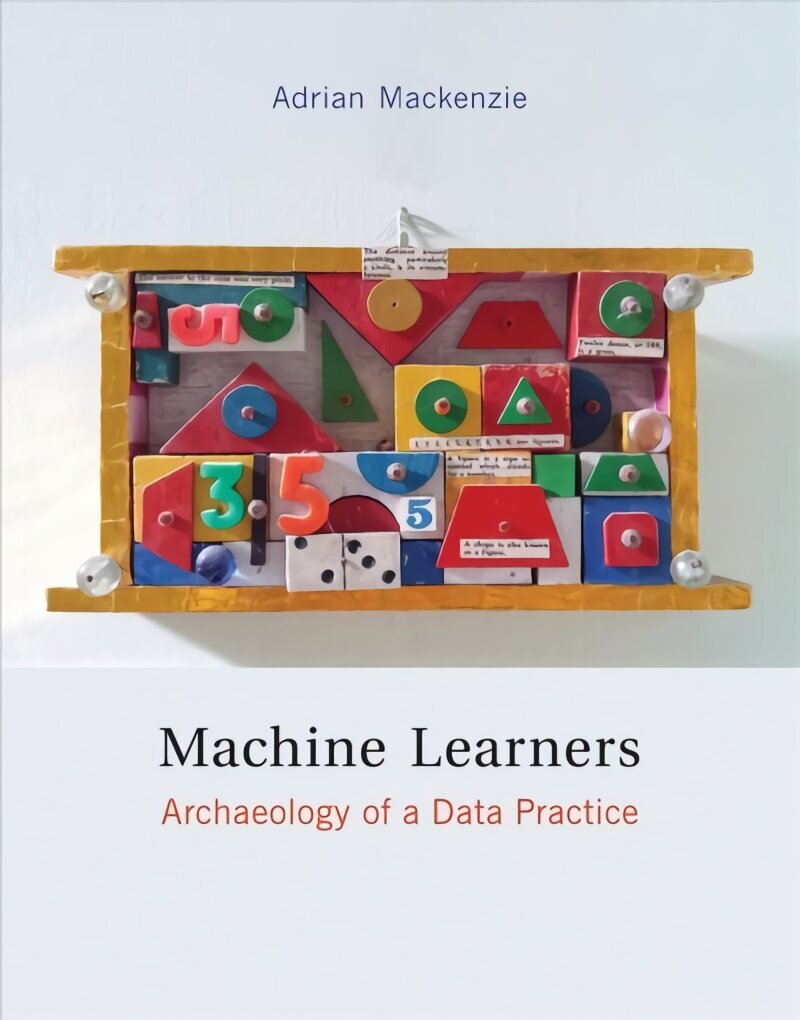-
Aiakaubad
-
Sport, puhkus, matkamine
- Grillid, suitsuahjud, lõkkealused
- Kohvrid, reisikotid
- Basseinid ja basseinitehnika
- Kalastustarbed
- Batuudid ja batuudi varuosad
- Täispuhutavad veemänguasjad ja ujumistarbed
- Paadid, süstad ja lisavarustus
- Vabaõhumängud
- Hasartmängud, pokker
- Mängulauad
- Jahindustarbed
- Seljakotid ja kotid
- Võrkkiiged, päevitustoolid, varikatused, aiakiiged
- Laste mänguasjad
- Sporditarbed
- Spordikotid, seljakotid
- Veesport
- Massaažikaubad
- Liigesetoed ja -kaitsmed
- Jalgpall
- Reketsport
- Poksivarustus
- Korvpall
- Käimiskepid
- Noolemängud
- Võrkpall
- Discgolf
- Sammulugejad, kronomeetrid, pulsikellad
- Pallipumbad ja otsikud
- Golf
- Balletiriided
- Pesapall
- Käsipall
- Ratsutamine
- Saalihoki ja välihoki
- Pallid
- Jalgrattad, rulluisud, rulad
- Trenažöörid, treeningvarustus
- Mängulauad
- Hantlid, kangid, raskused
- Aminohapped
- Süsivesikud
- Proteiin
- Batoonid
- Muud toidulisandid ja preparaadid
- Ergutid
- Funktsionaalne toit
- Glutamiin
- Kreatiin
- L-karnitiin
- Toidulisandid ja preparaadid massi suurendamiseks
- Toidulisandid ja preparaadid liigestele
- Tooted taastumiseks
- Rasvapõletid
- Toidulisandid ja preparaadid salenemiseks
- Testosterooni stimulaatorid
- Vitamiinid
-
Mööbel ja sisustus
- Söögilaua toolid, köögitoolid
- Köögikapid
- Köögi- ja söögilauad
- Söögilauakomplektid
- Köögitasapinnad
- Köögimööbli komplektid
- Köögimööbli tarvikud
- Köögimööbli kollektsioonid
-
Kodumasinad, kodutehnika
- Kaablid ja juhtmed
- Teleri seinakinnitused ja hoidjad
- Telerid
- Smart TV tarvikud
- TV antennid
- Meediamängijad ja tarvikud
- Digiboksid
- Veekeetjad
- Filterkannud ja filtrid
- Kohvimasinad
- Fritüürid, kuumaõhufritüürid
- Saumikserid, hakkijad
- Blenderid
- Köögikombainid
- Köögikaalud
- Muu köögitehnika
- Mikserid
- Rösterid
- Vahvliküpsetajad ja pannkoogiküpsetaja
- Võileivagrillid
- Vaakumpakendajad
- Aurutajad, multikeetjad
- Nutipotid ja taimelambid
- Elektrigrillid
- Mahlapressid
- Kohviveskid
- Hakklihamasinad
- Mulliveemasinad
- Toidukuivatid
- Viilutajad ja noateritajad
- Veeseadmed
- Leivaküpsetajad
- Pliidiplaadid
- Õhupuhastid
- Mikrolaineahjud
- Nõudepesumasinad
- Ahjud
- Miniahjud, -pliidid
- Gaasipliidid
- Elektripliidid
- Toidujäätmete purustajad
- Massaažiseadmed
- Juuksesirgendajad ja koolutajad
- Elektrilised hambaharjad
- Maniküüri, pediküüri tarvikud
- Juukselõikusmasinad, trimmerid
- Elektriliste hambaharjade otsikud
- Vererõhuaparaadid
- Föönid
- Pardlid
- Epilaatorid, raseerijad
- Näohooldusseadmed
- Hambavahede puhastajad
- Inhalaatorid
- Soojendavad tooted
- Termomeetrid
- Jalavannid
-
Lapsed ja imikud
- Beebitooted
- Toitmiseks
- Lapsevankrid, jalutuskärud
- Turvatoolid ja tarvikud
- Tooted emadele
- Reisivoodid, mänguaedikud
- Beebitoidud ja piimasegud
- Beebi lamamistoolid
- Beebimadratsid
- Kõhukotid
- Käimistoed
- Imikute käe- ja jalajäljendid
- Beebivoodid
- Mähkmed
- Voodipesu lastele ja imikutele
- Vastsündinutele
- Laste ohutustarvikud
- Beebiriided
-
Kosmeetika, parfüümid
- Ripsmetušid, lauvärvid, silmapliiatsid, seerumid
- Jumestuskreemid, puudrid
- Küünelakid, küünetugevdajad
- Huulepulgad, -läiked, -palsamid, vaseliin
- Maniküüri ja pediküüri tarvikud
- Meigikotid, lauapeeglid
- Kulmuvärvid, -pliiatsid
- Meigipintslid, -käsnad
- Päikesepuudrid, põsepunad
- Kunstripsmed, ripsmekoolutajad
- Näokreemid
- Näopuhastusvahendid
- Näoõlid, seerumid
- Näomaskid, silmamaskid
- Silmakreemid, seerumid
- Näopuhastus- ja massaažiseadmed
- Giorgio Armani parfüümid
- Victoria's Secret parfüümid ja kosmeetika
- Lanvin parfüümid
- Lacoste parfüümid
- Antonio Banderas parfüümid
- Trussardi parfüümid
- Calvin Kleini parfüümid
- Versace parfüümid
- Hugo Bossi parfüümid
- Elizabeth Ardeni parfüümid
- Dolce & Gabbana parfüümid
- Paco Rabanne parfüümid
- Carolina Herrera parfüümid
-
Mobiiltelefonid, foto-, videokaamerad
- Telefoni kaaned, ümbrised
- Ekraani kaitsekiled
- Telefonid
- Mobiiltelefonide laadijad
- Mobiiltelefonide kaablid
- Mobiiltelefonide hoidjad
- Akupangad
- Mobiiltelefonide mälukaardid
- Mobiiltelefonide lisatarvikud
- Mobiiltelefonide akud
- Selfie sticks
- Käed-vabad seadmed
- Telefoniosad ja parandamise tööriistad
- Kõrvaklapid
-
Jalanõud, riided ja aksessuaarid
-
Kodutarbed
- Köögitarbed
- Lauanõud ja kööginõud
- Klaasid, tassid ja kannud
- Pannid
- Potid ja kiirkeedupotid
- Ahjuvormid ja küpsetustarvikud
- Toidu säilitusnõud
- Noad ja tarvikud
- Termosed, termostassid
- Kohvikannud, teekannud
- Söögiriistad
- Vürtsid, vürtsikomplektid
- Soola- ja pipraveskid, maitseianepurgid
- Lõikelauad
- Hoidistamiseks
- Termostassid ja joogipudelid
- Temaatilised ühekordsed nõud
- Filterkannud ja filtrid
-
Sanitaartehnika, remont, küte
- Käsitööriistad
- Elektrilised tööriistad
- Tööriistakastid, tööriistahoidjad
- Redelid
- Riiulid tööriistadele
- Kinnitusvahendid
- Metallidetektorid
- Lumelabidad, lumesahad
- Lumepuhurid
- Tööstuskaalud
- Moodulriiulid
- Autopesuseadmed
- Fototapeedid
- Tapeedid
- Kleepkiled
- Lae-, seinakaunistus elemendid
- Eritellimusel valmistatud seina- ja aknakiled
- Seinaplaadid
- Lastetoa fototapeedid
- Dekoratiivkivid
- Ukselingid
- Siseuksed
- Lukud
- Ukse hinged, tarvikud
- Ukse varikatused
- Katuse aluskatted
- Plastikaknad
- Välisuksed ja raamid
- Kontroll-luugid, tarvikud
- Katuseaknad
- Patareid
- Pikendusjuhtmed, kaablid
- Taskulambid, prožektorid
- Lülitid ja pistikupesad
- LED ribad
- Lambipirnid, lambid
- Akulaadijad
- Päikeseenergiajaamade osad
- Toiteplokid
- Taimerid, termostaadid
- Tekstiilkaablid ja elektriklemmid
-
Arvutid ja IT- tehnika
- Arvutikorpused
- Sisemised kõvakettad (HDD, SSD, Hybrid)
- Videokaardid (GPU)
- Operatiivmälu (RAM)
- Emaplaadid
- Protsessori jahutid
- Komponentide tarvikud
- Toiteplokid (PSU)
- Arvuti ventilaatorid
- Protsessorid (CPU)
- Termopastad
- Optilised seadmed
- Lisatarvikud korpustele
- Helikaardid
- Regulaatorid
- Vesijahutused - komplektid
- Vesijahutused - lisaseadmed
- TV vastuvõtjad, FM, videokaardid
- Videokaardi jahutid
-
Lemmikloomatarbed
- Kuivtoit koertele
- Pesad, padjad
- Hooldusvahendid loomadele
- Transportkorvid, puurid
- Toidukausid loomadele
- Maiustused koertele
- Konservid koertele
- Kaelarihmad ja traksid koertele
- Koerte jalutusrihmad
- Mänguasjad koertele
- Toidulisandid ja parasiitide vastased tooted
- Karvahooldustooted loomadele
- Reisimise tarvikud
- Riided koertele
- Dresseerimise vahendid koertele
- Kuivtoit kassidele
- Kassiliiv
- Kraapimispuud
- Konservid kassidele
- Liivakastid kassidele
- Mänguasjad kassidele
- Maiustused kassidele
- Jalutusrihmad, kaelarihmad ja traksid kassidele
- Vitamiinid, toidulisandid ja parasiitide vastased tooted
- Asemed, padjad
- Transportkorvid, puurid
- Toidukausid loomadele
- Karvahooldustooted kassidele
- Hooldusvahendid kassidele
- Autokaubad
-
Erootikakaubad
-
Kingitused, peoatribuutika
- Parfüümid naistele
- Kosmeetika naistele
- Naiste aksessuaarid
- Mobiiltelefonid
- Juhtmevabad kõrvaklapid
- Difuuserid
- Robottolmuimejad
- Kohvimasinad ja espressomasinad
- Nutikellad ja nutivõrud
- Fritüürid, kuumaõhufritüürid
- Kodulõhnastajad
- Juuksesirgendajad ja koolutajad
- Epilaatorid, raseerijad
- Föönid
- Näohooldusseadmed
- Elektrilised hambaharjad
-
Kaitsevahendid ja meditsiinitarbed
- Maskid, respiraatorid
- Kaitseseinad, desinfitseerimis seadmed
- Kaitseprillid, näokaitsed
- Desinfitseerimisvahendid
- Ühekordsed kindad
- Desinfitseerivad puhastusvahendid
- Toidukaubad
-
Raamatud
-
Nutikodu
- Outlet
-
Kontoritarbed, koolikaubad, loometöö tooted
Näita rohkem kategooriaid
.png) Suvi on ühe kliki kaugusel! Hooaja lemmikud ja uued tooted superhindadega!
Suvi on ühe kliki kaugusel! Hooaja lemmikud ja uued tooted superhindadega! 





